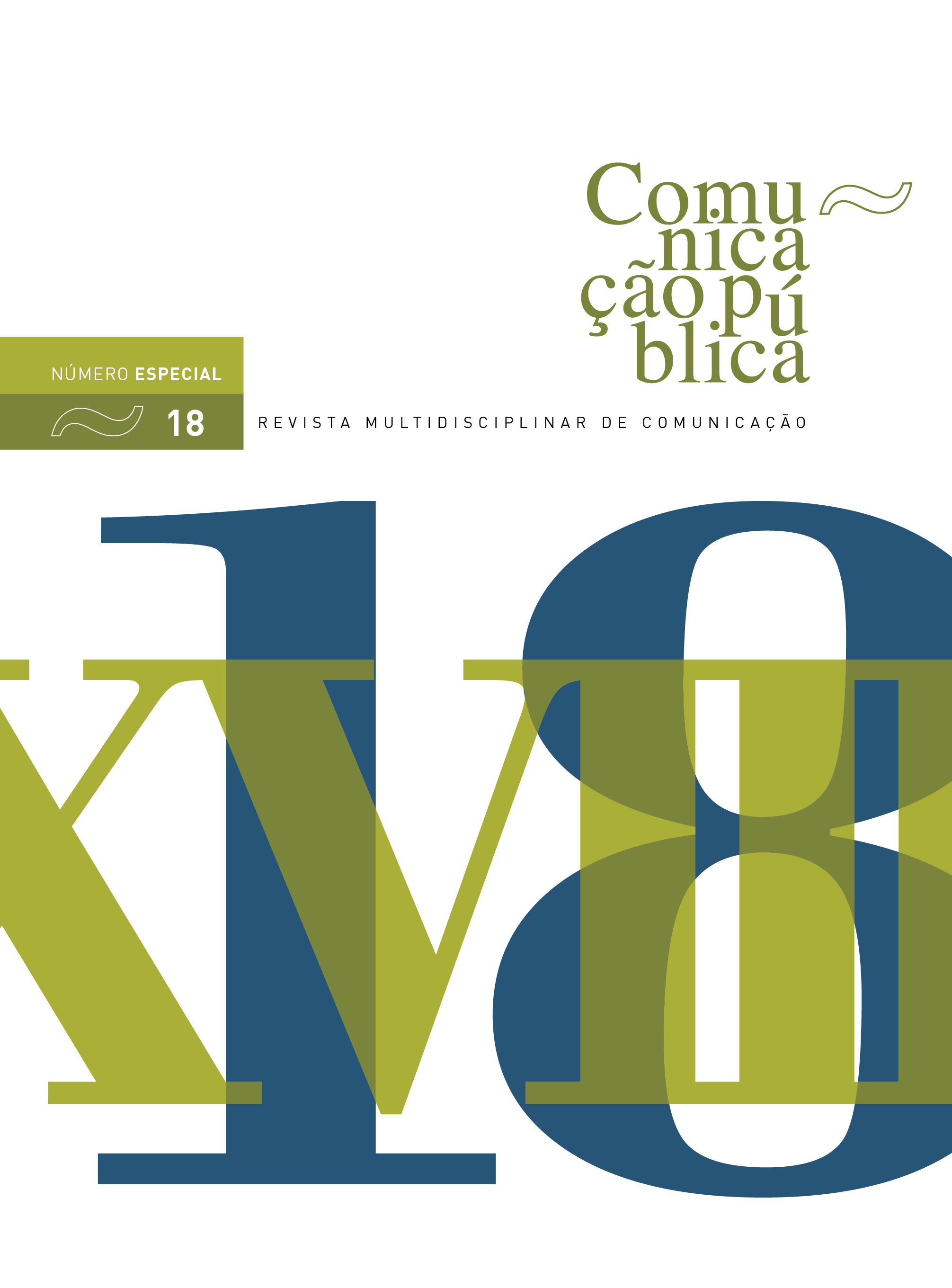Looking for social class and civil society in political discourse in Portuguese democracy (1976-2006)
content analysis approach
DOI:
https://doi.org/10.4000/cp.1005Keywords:
politics, social class, political discourseAbstract
Political discourse gives an important clue to the importance of key concepts with ideological political relevance, in the political system. That is the case of social class, religion and political parties, considering their role in political and electoral terms. The social class concept has been long and widely debated in political sociology. Its importance in political language and discourse is the key issue of this research. The focus of this study is the importance of social class, considering the segmentation of different civil society groups as expressed in political discourse. The aim is to analyse political speeches made by the most important political actor in the nation, the President. Our scope of analysis covers the timeline since the first stages in Portuguese democracy following the Revolution of April 1974, and extends until 2006. Content analysis technique will be used to address it. The expected results point towards the loss of importance of social class, as a traditional key concept, which evolved in quite extensive ways, in its application to contemporary political messages. This study tends to converge with the mainstream literature that has elaborated on the structural and permanent loss of importance of social class in politics, including in electoral terms.
Downloads
References
Babbie, E. R. (2008) The Basics of Social Research. USA: Thomson Higher Education.
Bardin, L. (2001 [1977]) L´Analyse de Contenu, Paris: PUF. DOI : 10.3917/puf.bard.2013.01
Bellucci, P., Maraffi, M. & Segatti, P. (2007) Intermediation Through Secondary Associations: The Organizational Context of Electoral Behaviour. In Gunther, R., Montero, J. R. and Puhle H.-J. ed Democracy, Intermediation, and Voting on Four Continent, Oxford: Oxford University Press: 135-182.
Bourdieu, P. (1989) O Poder Simbólico. Lisbon: Difel.
Bryman, A., Hardy, M. A. (2009) Handbook of Data Analysis. India: Sage Publications.
Capdevielle, J., Dupoirier, E. (ed.) (1981) France Gauche vote à Droite. Paris: PFNSP.
Dalton, R. J. (1996a) Comparative Politics: Micro-Behavioral Perspectives. In Klingemann, H.-D., Goodin, R. eds. A New Handbook of Political Science. Oxford: Oxford University Press, 2000: 336-352.
Dalton, R. J., (1996b) Political Cleavages, Issues and Electoral Change. In LeDuc, L., R. Niemi, Norris, P. eds Comparing Democracies: Elections and Voting in Global Perspective. USA: Thousand Oaks, Sage: 319-342
Dalton, R. J., S. C. Flanagan, P. A. Beck eds (1984) Electoral Change in Advanced Industrial Democracies: Realignment or Dealignment? Princeton: Princeton University Press. DOI : 10.2307/j.ctt1m323nh
Delue, S. M. (1997) Political Thinking, Political Theory and Civil Society. Boston: Ally and Bacon. DOI : 10.4324/9781315663241
Eshbaugh-Soha, M. (2006) The President’s Speeches – Beyong ‘Going Public’ USA: Lynne Rienner Publishers.
Espírito Santo, P. (2007) Comunicação e política nos discursos presidenciais de tomada de posse: 1976-2006. In Martins, M. M. (coord.). Comunicação e Marketing Político. Lisbon: ISCSP: 63-93.
Espírito Santo, P. (2006) Sociologia Política Eleitoral – Modelos e Explicações de Voto. Lisbon: ISCSP.
Hoggart, R. (1957) The Uses of Literacy. Aspects of Working-Class Life with Special Reference to Publications and Entertainments. London: Peguin Books.
Inglehart, R., (1977) The Silent Revolution. Princeton University Press.
Inglehart, R. (1990) Culture Shift in Advanced Industrial Society. Princeton University Press. DOI : 10.2307/j.ctv346rbz
Inglehart, R., P. R. Abramson (1995) Value Change in Global Perspective. USA: The University of Michigan Press.
Kernell, S. (1997) Going Public: New Strategies of Presidential Leadership. Washington: CQ Press.
Kotzian, P. and Steffer, J. (2013) Do Members Make a Difference? A Study of Transnational Civil Society Organizations. European Political Science Review, 5(1): 55-81. DOI : 10.1017/S175577391200001X
Krippendorf, K. (1980) Content Analysis: An Introduction to its Methodology. Beverly Hills, CA: Sage.
Laver, M., Benoit, K. and Garry, J. (2003) Extracting Policy Positions from Political Texts Using Words as Data. The American Political Science Review, vol. 97(2) (May 2003): 311-331. DOI : 10.1017/S0003055403000698
Lipset, S. M. (1981 [1959]) Political Man – The Social Bases of Politics Baltimore: The Johns Hopkins University Press.
Lipset, S. M. & Rokkan, S. S. (eds) (1967) Party Systems and Voter Alignments. New York: Free Press.
Nieuwbeerta, P. & Graff, N. D. de (1999) Traditional Class Voting in Twenty Post war Societies. In Evans, G. eds The End of Class Politics? – Class Voting in Comparative Context. Oxford: Oxford University Press: 23-56.
Norris, P. (1997) Electoral Change since 1945. USA: Blackwell Publishers.
Oakeshott, M. (1991 [1962]) Rationalism in Politics and Other Essays. London: Methuen (Expanded edition - 1991, by Liberty Fund).
Ortega y Gasset, J. (1989[1930]) A Rebelião das Massas. Lisbon: Relógio d'Água Editores.
Scarbrough, E. & O. Knutsen (1995) Cleavage Politics. In van Deth, J. W., Scarbrough, E. eds. The Impact of Values. Oxford: Oxford University Press: 492-523.
Singly, F., C. Thelot, (1988) Gens du Public, Gens du Privé. La Grande Différence. Paris: Dunod.
Toffler, A. (1980) The Third Wave. Oxford: Pan Books.
Downloads
Published
Issue
Section
License
Copyright (c) 2015 Direitos do Autor (c) 2015

This work is licensed under a Creative Commons Attribution-NonCommercial 4.0 International License.
Os conteúdos da Comunicação Pública estão licenciados com uma licença Creative Commons - Atribuição-NãoComercial 4.0 Internacional.


